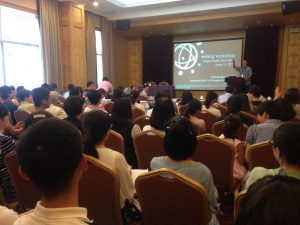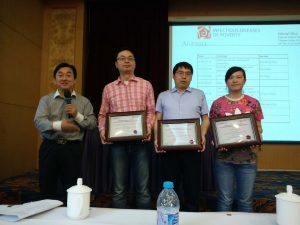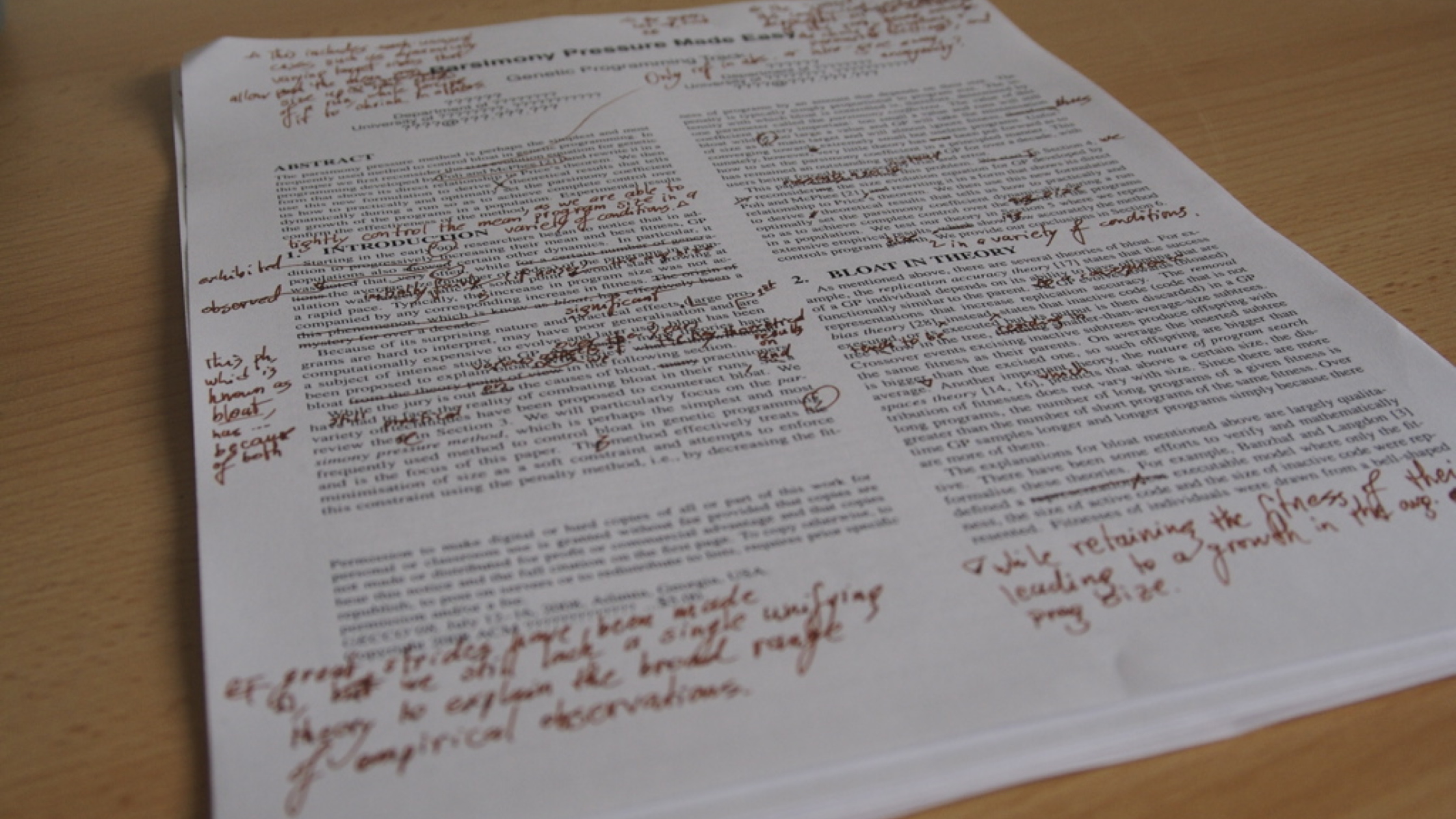Spotlight on Outreach: PLOS NTDs Cohosts International Writing Workshop in Shanghai, China
Serap Aksoy, co-Editor in Chief of PLOS NTDs and Marian Weidner, Senior Publications Assistant, give an overview of the recent International Writing Workshop
As part of the journal’s outreach work, PLOS Neglected Tropical Diseases Editorial Board has led nearly 20 writing workshops around the world since 2008, empowering early career researchers to publish in their work in peer reviewed journals and facilitating the dissemination of research findings.
Last month marked the completion of yet another successful scientific writing workshop, held in Shanghai, China in conjunction with the Third Symposium on Surveillance and Response Leading to Tropical Disease Elimination.
Jointly hosted by PLOS NTDs and Infectious Diseases of Poverty (IDP) in Shanghai, China, approximately 100 international and Chinese participants in the field of medicine learned the basics of “getting published”. Led by PLOS Neglected Tropical Diseases Associate Editor David Blair, IDP Managing Editor Pin Yang, and Université des Montagnes, Bangangté Pharmacology expert Ernest Tambo, the workshop touched on a range of topics relevant to writing for publication.
Dr. Blair helped demystify the peer review process, advising participants on how to choose a journal suitable for publishing one’s work, as well as the standard sections of a scientific manuscript (abstract, background, methods, etc.). The second part of his presentation relayed applicable rules of writing and the basics and clear writing techniques— valuable information for a group reporting “language” and “paper” as the most difficult aspect of scientific writing via a questionnaire administered at the workshop’s conclusion.

Dr. Yang followed with an informational session on the scope and service of IDP, as well as the One health-One world approach to conducting research on tropical diseases -a strategy that embraces holistic, collaborative, and interdisciplinary public health initiatives. He concluded his discussion by walking attendees through the review process from submission to publication, explaining key questions and concepts to an engaged audience of future authors.
Bringing a broader perspective to the workshop with his presentation, Dr. Tambo asked, “Can evidence-based scoping reviews guide emerging epidemics and infectious diseases policies, priorities and interventions?” drawing on examples of scoping reviews published in IDP and delineating the article type components. The workshop concluded with a short session with Mr. Men-Bao Qian, a researcher at the National Institute of Parasitic Diseases, Chinese Center for Disease Control and Prevention, who shared insights on the entire research-to-publication process while explaining the mechanics of literature reviews, study design and implementation, data analysis, manuscript writing, submission and revision.
Participants responded enthusiastically, with over 72% providing feedback that the workshops had imbued them with greater knowledge on how to choose a journal, and how to draft a research article for publication. Hopefully, these learning outcomes will contribute toward more well-written papers submitted to journals in the field, and greater global representation of NTDs researchers in peer reviewed publications.

Many early career researchers working in disease endemic areas are making important contributions toward the goal of diminishing neglected tropical diseases worldwide, yet have not received training on the writing conventions and protocols of English language science journals. PLOS NTDs writing workshops help young scientists understand the peer review process and best practices for writing scientific manuscripts.
Featured image credit: Nic McPhee, Flickr
